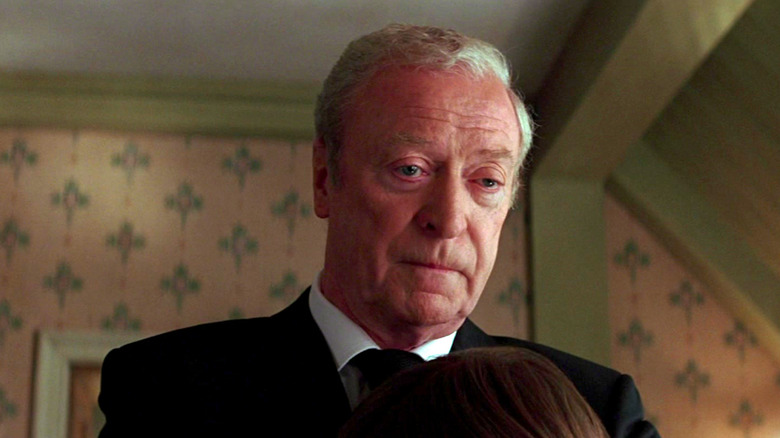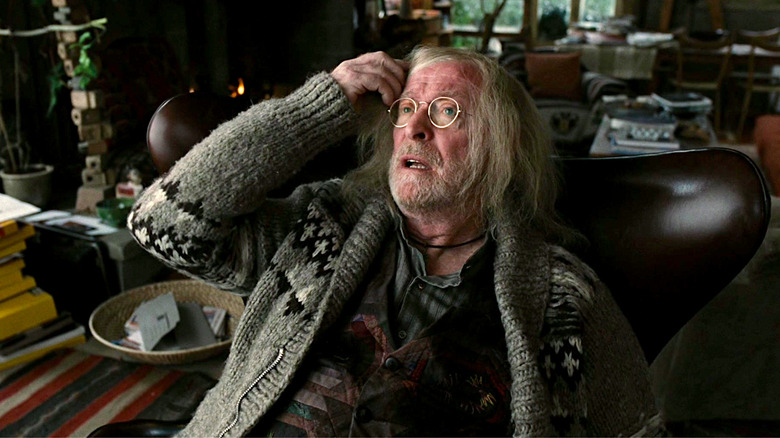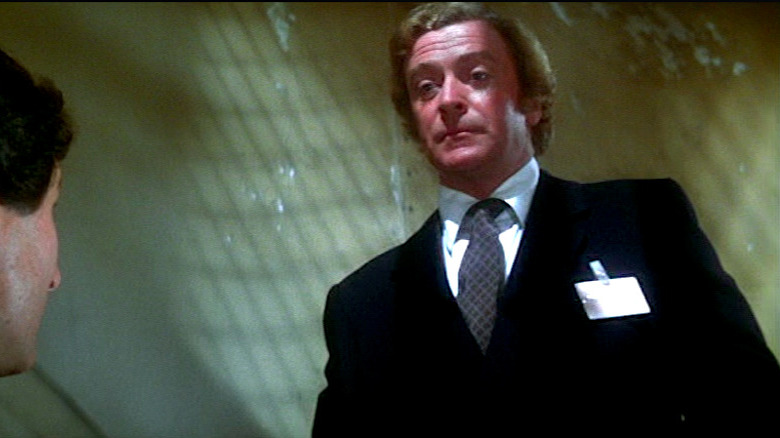Michael Caine's Big Break Didn't Come From His Acting Chops
In order to make it big in Hollywood, sometimes talent alone isn't enough. Michael Caine, one of the industry's most celebrated movie stars, understands this. Caine has had a remarkably robust acting career that has spanned decades of his life. Perhaps most recognizable to modern audiences for his role as Batman's faithful butler Alfred Pennyworth in Christopher Nolan's "Dark Knight" trilogy, Caine has also starred in major films like Brian De Palma's eerie 1980 masterpiece "Dressed to Kill" and Alfonso Cuarôn's 2006 dystopian thriller "Children of Men." More recently, he's made appearances in Nolan's 2020 film "Tenet," and the just-released historical drama "Medieval."
When looking over his filmography, there is no doubt that Caine is a talented and prolific actor, but if it hadn't been for two very specific career moves, it's possible we may never have gotten to see his rise to fame.
Goodbye, Maurice. Hello, Michael Caine.
Michael Caine didn't always exist. He is the invention of a young Maurice Micklewhite, who was born in England in 1933. According to his official website, Caine took small gigs for years until his big break. However, his agent informed him that he would need to change his current stage name of "Michael Scott" (yes, really) to something else, since another actor was already using the same name. Caine's website states the name change happened while Caine was "speaking from a telephone box in Leicester Square." Desperate for inspiration, Caine noticed "that "The Caine Mutiny" was being shown at the Odeon," and thought "Caine" sounded good enough for a last name. The rest is history.
In an article for The Guardian, Caine talks about his name change. He changed it from his Micklewhite origins "ages ago." Now, hardly anyone refers to him by his old name. "I haven't got any family members now, so no one's called me Maurice for years," he explains. Still, changing a name is a pretty big undertaking. Not only does it involve a lot of paperwork and a reorganization of every single thing you have ever elected to receive in the mail, but there is also a profound shift of self that occurs. For Caine, his name change was final both literally and spiritually. He tells The Guardian, "The day I became Michael Caine, that was it — I was Michael Caine. I wasn't Maurice any more, I was a completely different person. And it was amazing. It was fabulous."
Like a character out of a Patricia Highsmith novel, Caine's decision to leave Maurice Micklewhite behind gave him the confidence he needed to become the successful actor we know today. He says, "Nobody knew [Maurice Micklewhite]. He was broke. He was out of work. And the moment I became Michael Caine, I got a job and was on my way."
You look like an officer
So just what was the film that gave Caine his big break? That would be none other than the 1964 war film "Zulu." However, he almost didn't land a part in the film. The director Cy Endfield cast another actor in the role Caine originally wanted, but in a twist of fate, Endfield realized there might be a place for Caine in his film anyway. Caine told The Guardian,:
"My entire movie career is based on the length of the bar at the Prince of Wales theatre, because I was on my way out and it was a very long walk to the door. And I had just got there, when he called out: 'Come back!' because he had decided that I could play the part of the officer instead. He said: 'You look like an officer,' because I was 6ft 2in, blond hair, very slim. The door was half-open; I was very nearly through it. I turned around and walked back in."
And so, Caine's start to his prolific career was not solely based on his talent as an actor. Instead, his policeman-like appearance and movie star sounding name helped set him on the path of one of the best actors Hollywood has ever seen.


